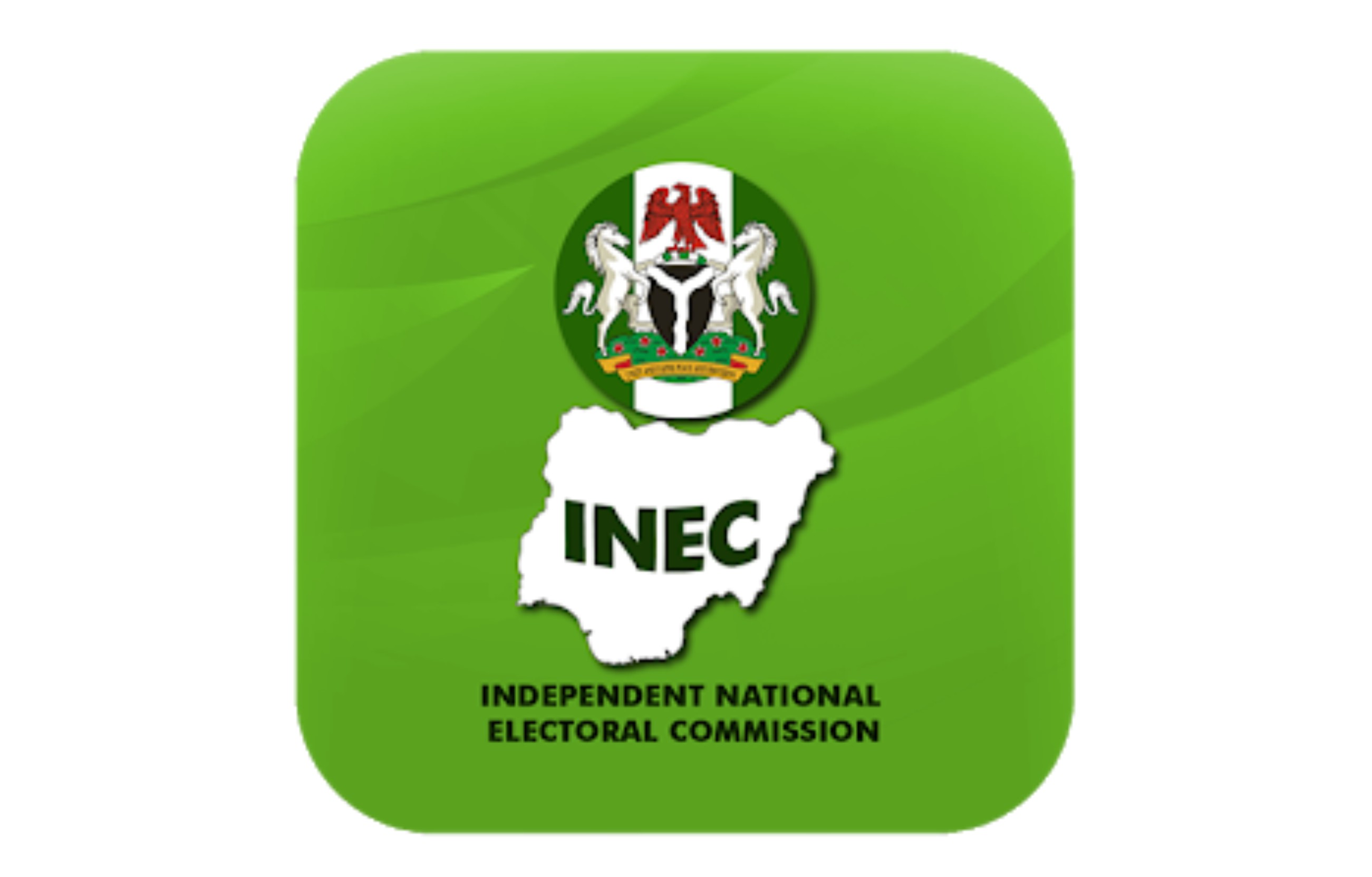News
Ondo Poll: PDP Rejects Ogunbodede As Returning Officer …Says Jegede Set To Defeat Akeredolu

The Peoples Democratic Party Ondo State Governorship National Campaign Council has rejected the appointment of the Vice Chancellor of Obafemi Awolowo University, Ile-Ife, Prof Eyitope Ogungbenro Ogunbodede, as the Chief Returning Officer of Saturday’s Ondo State governorship election.
The Chairman of the council and the Oyo State Governor, Engr Seyi Makinde, said that Ogunbodede is the kinsman of the candidate of the All Progressives Congress, Governor Rotimi Akeredolu.
Addressing newsmen in Akure, Makinde said “it has come to our notice that the people of Ondo State will not be getting free and fair elections if the Independent National Electoral Commission (INEC), as presently composed, will be overseeing the elections.
“We are speaking in particular about the appointment of Prof Eyitope Ogungbenro Ogunbodede, the Vice Chancellor of Obafemi Awolowo University, Ile-Ife, as the Chief Returning Officer of the Ondo State Governorship election.
“The PDP totally rejects Prof Eyitope Ogungbenro Ogunbodede acting as Chief Returning Officer.
“He is a known crony of Rotimi Akeredolu, SAN, candidate of the All Progressives Congress and hails from Owo, the same hometown as the candidate.
“He cannot be a fair party in the proceedings by virtue of their association.
“We also want to state that Professor A. S. Bamire, the deputy Vice-Chancellor (Academic) of the Obafemi Awolowo University, Ile-Ife, who conducted the training of returning officers is not a neutral party for the purpose of this election.
“We, therefore, call on INEC to stay true to their name and replace Prof Eyitope Ogungbenro Ogunbodede with a disinterested party. The Chief Returning Officer should have no affiliations with any of the participating parties in the elections.
“We also take this opportunity to call on all lovers of democracy around the world to pay attention to what the APC led administration in the centre is trying to do in Ondo State.
“We call on the United Nations, the European Union, the United State and the United Kingdom and indeed all allies of democracy to call INEC to order.
“We call on all security agencies in Ondo State not to allow themselves to be used as a tool against the will of the people.
“We commend you for all you have done so far providing the needed support and security for our candidate and our people.
“We urge you to do more. Don’t forget that history and posterity have never been kind to anyone who allowed themselves to be used as a tool for injustice.
“We urge you to read the mood of the people and act accordingly. Politicians may come and go, but the people will always remain. Remember, the world is watching”, Makinde said.
He added, “We won’t accept this. We don’t want the people of Ondo State to be cheated”.
He called on the security agencies to read the mood of the people of the state and do what’s right on Saturday, adding that “The world is watching us”.
Meanwhile, the PDP National Campaign Council for Ondo Governorship election has revealed that with all critical indices, the PDP candidate, Eyitayo Jegede SAN, will defeat his APC counterpart, Governor Rotimi Akeredolu on Saturday.
The Chairman of the PDP Campaign’s Publicity Sub-Committee, Kola Ologbondiyan, in an interview on AIT programme, Kakaki, yesterday morning, revealed that Governor Akeredolu’s poor governance as well as anti-people policies of denying the people of their rights to health, education and economic benefits, have irredeemably pitched him against voters.
This is coming on the heels of Governor Akeredolu’s open declaration that the PDP candidate, Eyitayo Jegede, is fit, capable and trusted hand to manage the affairs of the state as governor.
Akeredolu, in a recent interview on Arise TV agreed that Eyitayo Jegede is a competent hand to lead the state.
In endorsing Jegede, Akeredolu, described the PDP candidate as “worthy of the office”; a statement that conveys Akeredolu’s readiness to concede defeat after being voted out on Saturday.
However, appearing on Kakaki, Ologbondiyan stressed that the overwhelming demography of voters, have rejected Akeredolu’s self-serving administration for its wicked policies including the increase in school fees by over 100 percent and stopping of the “Mother and Child” health program, established by previous administration to bring succour to the poor, even in the face of prevailing harsh economic situation in the country.
This is in addition to the entrenching of a corrupt system through which resources meant for the ordinary citizens are allegedly being frittered by his cronies and relations, the latest being the failure of the administration to account for the Covid-19 intervention fund released to the state.
According to Ologbondiyan, “Governor Akeredolu went against the heart of the expectation and values of the Ondo people. Education, welfarism for the poor, particularly their health and economic empowerment are at the core expectation of the people but Governor Akeredolu’s administration went against all of them.”
Ologbondiyan recalled that the low fee education system as well as the mother and child program were part of the welfarist policies of the past administration in which Eyitayo Jegede served as the Attorney General.
He said the PDP candidate is set to restore all welfarist programs in addition to entrenching other people-oriented policies in an all-inclusive government, immediately he is elected into office as governor.
The PDP campaign stressed that the Eyitayo Jegede’s practical and people-driven manifesto had led the majority of Ondo people to reach a consensus to vote him in as their new governor.
The campaign therefore urged President Muhammadu Buhari not to succumb to pressure by the APC to interfere in the election but ensure a reinforcement of his stance of non-interference in elections, as witnessed in the Edo governorship election, which brought him applause across board.
He also urged INEC and security agencies to respect the wish of the people by ensuring the sanctity of the ballot box in addition to transmitting of results directly from the polling unit.
News
Tinubu Appoints Four Nominees Into NCDMB Governing Council

President Bola Tinubu has approved the nomination of four new members to the Governing Council of the Nigerian Content Development and Monitoring Board (NCDMB).
The Special Adviser to the President on Information and Strategy, Bayo Onanuga, in a statement yesterday, said the appointment is to fill existing vacancies and strengthen the board’s capacity.
The statement said the approved nominees are Mr. Olusegun Omosehin of the National Insurance Commission and Engr. Wole Ogunsanya of the Petroleum Technology Association of Nigeria.
Tinubu also endorsed the nomination of Sam Onyechi, who represents the Nigerian Content Consultative Forum and Barrister Owei Oyanbo from the Ministry of Petroleum Resources.
The President encouraged the new members to leverage their expertise and dedication to enhance local content development within Nigeria’s oil and gas industry.
It added, “The nominations arose from the exit of previous institutional representatives from the Governing Council.
“The NCDMB Governing Council, established under Section 69 of the Nigerian Oil and Gas Industry Content Development Act, 2010, comprises representatives from key institutions.
“These include the Ministry of Petroleum Resources, the Nigerian Upstream Petroleum Regulatory Commission, the Nigerian National Petroleum Company Limited, the Petroleum Technology Association of Nigeria, the Council for the Regulation of Engineering in Nigeria, the Nigerian Content Consultative Forum, and the National Insurance Commission.”
News
NDDC To Construct Hostels, Roads In UNIPORT – Ogbuku

The Niger Delta Development Commission (NDDC) has announced plans to construct additional hostels, rehabilitate roads, and enhance power supply in the University of Port Harcourt (UNIPORT).
NDDC’s Managing Director, Dr Samuel Ogbuku, disclosed this during a visit to the commission’s headquarters in Port Harcourt, yesterday by a delegation from the UNIPORT’s Governing Council.
Ogbuku stated that the NDDC had committed to upgrading facilities at UNIPORT as part of efforts to foster partnership with educational institutions across the Niger Delta.
According to him, the implementation of additional projects at the university forms part of a broader strategy to improve education standards in the region.
“Aside from the construction of new hostel blocks and installation of a 300 KVA solar inverter system, the NDDC will also facilitate more projects in the university.
“The commission will also deploy its engineers to assess the condition of UNIPORT’s roads and hostels for potential rehabilitation,” he said.
Ogbuku noted that upon completion, the projects would add to various initiatives previously undertaken by the commission at the university.
“These and other projects reflect our commitment to actualising President Bola Tinubu’s Renewed Hope Agenda in the Niger Delta region,” he added.
He reaffirmed the NDDC’s dedication to fostering development and strengthening partnerships across the region.
Earlier, Sen. Mao Ohuanbunwa, Chairman of UNIPORT’s Governing Council, who led the delegation commended the current leadership of the NDDC for its achievements in accelerating development in the Niger Delta.
He highlighted the university’s infrastructural challenges, noting that it lacked adequate facilities to accommodate its growing student population, and appealed for the NDDC’s support in addressing the shortfall.
“Currently, UNIPORT has a total student population of about 50,000, while its hostel accommodation capacity can only cater for 5,000 students.
“We therefore urge the NDDC to assist in the construction of additional hostels, improve transportation facilities, and facilitate the acquisition of gas turbines to enhance power supply for our students,” Ohuanbunwa pleaded.
The Vice Chancellor of UNIPORT, Prof. Owunari Georgewill, commended NDDC for its impactful projects across the Niger Delta and extended an invitation to the commission to participate in the institution’s forthcoming 50th anniversary celebrations.
News
Senate Rejects Motion To Rename INEC Headquarters After Humphrey Nwosu

The Senate has rejected a motion to rename the Independent National Electoral Commission (INEC) headquarters after the former chairman of the defunct National Electoral Commission, late Prof Humphrey Nwosu.
Nwosu presided over the June 12, 1993, presidential election, which was truncated by the former military President, General Ibrahim Babangida (rtd).
The election which was won by the late business mogul, Chief MKO Abiola, was adjudged to be the freest and fairest in the electoral history of Nigeria.
The motion to rename INEC after Nwosu was re-sponsored by Senator Enyinnaya Abaribe yesterday after lawmakers threw it out last Wednesday.
Abaribe called for posthumous national honours to be conferred on Nwosu in recognition of his role in Nigeria’s democratic evolution.
However, the proposal sparked a heated debate once again, with lawmakers deeply divided over Nwosu’s legacy.
Senator Osita Ngwu acknowledged that Nwosu operated under a military regime, which restricted his ability to announce the results.
He argued that “there was no way he would have announced the results with a gun to his head. That doesn’t change the fact that some of us see him as a hero.”
Senator Austin Akobundu, however, described it as most uncharitable for lawmakers to dismiss Nwosu’s contributions, insisting that he deserved a place in Nigeria’s hall of honour.
On the other hand, several senators like Senator Jimoh Ibrahim dismissed the idea outright, questioning why the Senate should honour someone who failed to announce the results insisting that “nothing should be named after him”.
Senator Cyril Fasuyi argued that history does not reward efforts, but only results.
“As long as he did not announce the result, whether under duress or not, I am against naming INEC headquarters after him,” he submitted.
Also, Senator Sunday Karimi criticised Nwosu for lacking the courage to speak out, while Senator Afolabi Salisu warned that immortalising him would undermine the memory of MKO Abiola, the widely accepted winner of the June 12, 1993, annulled election.
“Any attempt to do anything beyond a one-minute silence is to rubbish Abiola’s legacy,” he tendered.
After intense deliberation, most senators rejected the motion through a voice vote.
They, however, agreed to honour him with a one-minute silence and extend condolences to his family, effectively dismissing the other prayers to immortalise Nwosu.
-
News4 days ago
TETFund To Set Up 72 Specialised ICT Centres
-
Sports3 days ago
Chelsea Fans Want Co-Owner Investigated
-

 News4 days ago
News4 days agoTinubu Appoints Four Nominees Into NCDMB Governing Council
-
Business3 days ago
Mixed Feelings Trail Telecom Tariff Hike …As Bayelsa Consumers Lament
-

 Rivers3 days ago
Rivers3 days agoSEEPCO’s Drives To Commitment of Safeguarding The Survival Of Tree Plantations In Nigeria
-
News4 days ago
New Constitution: Anyaoku, Osoba, Yakasai To Meet N’Assembly In April
-
Sports3 days ago
EPL To Have Two Transfer Windows
-
Niger Delta4 days ago
Diri Takes Remediation, Global Sanction For Environment Polluters To UN

